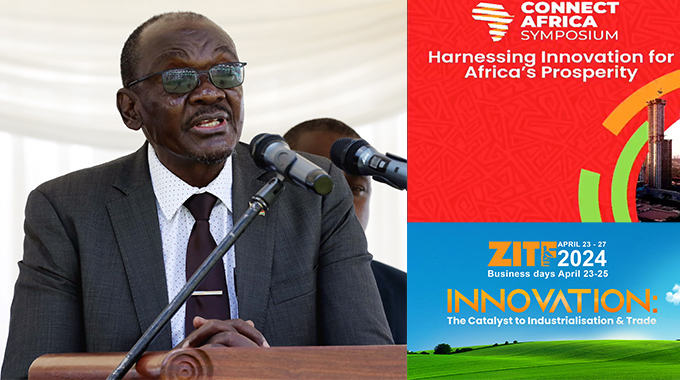Internal devaluation, short term pain for long term gain
CHANGE is a very difficult process. We are an economy that has had to undergo massive hyperinflation and profiteering to unprecedented levels. We have had to lose our Ubuntu/Hunhu just to overcome economic difficulties. In the process we acquired undesirable traits and we are struggling to shake those off and this has come back to haunt us. It has created an undervalued multi-currency regime.
We are just an expensive nation and that has strained us locally. Exports have been made expensive and how do we compete at such levels of production costs? How do we balance our inflows and outflows or just sustain our operations in such usurious and extortionate economic environment? Our economic model in its current state and format is not sustainable at all even if we try to lie to ourselves.
Salaries
The remuneration is warped and needs an across the board revision. By and large our compensation is beyond comprehension as it takes more man 90 percent of income generated in some cases. How does such an arrangement support exports or development? It’s not even sustainable to begin with yet we continue with the same status quo as if we await a miracle. Assuming we implement Special Economic Zones, what use will these be with such labour compensation? Let’s cut our obscene salaries in both Government and private sector but exempt the lower income brackets.
Electricity
Our tariffs are discouraging to production. Let’s not even compare to regional levels. Inefficiencies, obsolete infrastructure, huge wage bill feeds into an expensive local rate and exports. Let’s reduce our ZESA tariffs and encourage green energy.
Water and rates
Let me just say local government costs are too high. The pricing on these are a hindrance to stimulating growth. The time it takes to go round about doing business is time consuming. Let’s cut the red-tape, reduce tariffs, adhere to recommended service delivery ratios and it’s the beginning of a very cost effective and efficient environment that encourages exports and stabilisation of productions costs and services.
Levies
As a country we have too many levies in most value chains. Let’s combine these into one and then get a very competitive levy that encourages growth to economic actors. The need for higher levies is due to high expenditure due to costs of doing business in Zimbabwe, which we need to reduce to rational levels. Not only is it cumbersome but exhaustively expensive and that frustrates growth of the national economy. Even the export incentive get done through reduction in levies that exporters pay than by paying an extra incentive through bond notes of which banks can be the conduit via Government initiatives.
Taxation
The tax regime is not developmental nor user friendly. It is like thorns in a germination period, it chokes the upcoming and existing economic players to sustain over expenditure caused by an environment that has high costs across the board. It is not sustainable at all. It doesn’t encourage investments and chokes existing investments. A bold and courageous move will be to revise rate of taxation downwards to palatable levels to stimulate expenditure by releasing excess income to economic actors. Let’s revise taxation downwards, be creative and innovative in our taxation with exports the grand scheme of things and a healthy economic environment.
Fuel
Fuel has been the biggest elephant in the room. The adjustments made are just a scrap on the surface. The need to have further reductions is seriously encouraged to stimulate production and growth. Fuel prices are choking all economic actors and preventing the stabilisation of the economic environment to the detriment of the country’s exports, which are being pursued to earn much needed exports.
Let’s cut fuel prices.
Gross margins and corruption
For how long are we going to be consumers of higher margins?
At whose expense are these yester-year’s profiteering sustained? We know what we need to do this can’t go on and be business as usual. Small profit quick returns mantra is the future. These have a bearing on cost of production. There is need to devalue these tendencies to minimal levels. There are legal and social instruments to remedy such inclinations.
Mindset, cost of infrastructure
The only thing that needs revision is the mind-set. The need to change the way we think and act on a daily basis because this has been devalued for a while.
Let’s interrogate our major projects to sustain the investments and funds sunk. We must not mortgage our future children to debt on the strength of infrastructural development. Keep A hawk’s eye on costs. The need to avail long term cost effective funding is a no-brainer. The beginning of economics is the use of rail in the value chain. It’s very strategic and gladly we have started that in 2018.
Way forward
Provide a vibrant market by cutting middlemen and reduce Government bureaucracy. Expedite revival of rail infrastructure because it forms a cost effective way of moving bulky raw materials and bulky finished products as it was spread strategically across all coordinates of producers of goods. Cutting prices across including salaries is the way to go and there is no need to be emotional about it. The time is now or die. A fair, just pricing regime is required to increase competitiveness especially exports. Let’s test the economic button and start afresh together with the guts and temperament of a matador but it requires a level head. We need short term pain for long term gain. Everyone knows what we have to do but the will power is lacking.
IF YOU LIVE IN BULAWAYO PLEASE CONSERVE WATER, IF YOU LIVE IN ZIMBABWE PLEASE USE ELECTRICITY SPARINGLY SWITCH OFF SWITCHES (SOS), IF YOU LIVE ON PLANET EARTH PLEASE PRESERVE THE ENVIRONMENT
Morris Mpala is the managing director of MoB Capital Limited, a Bulawayo-headquartered micro-finance institution with footprint across the country.











Comments